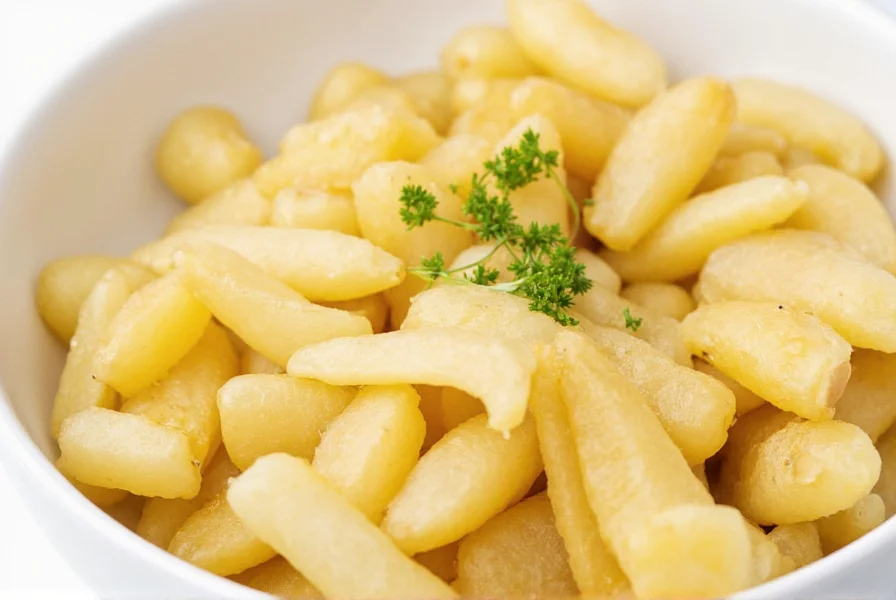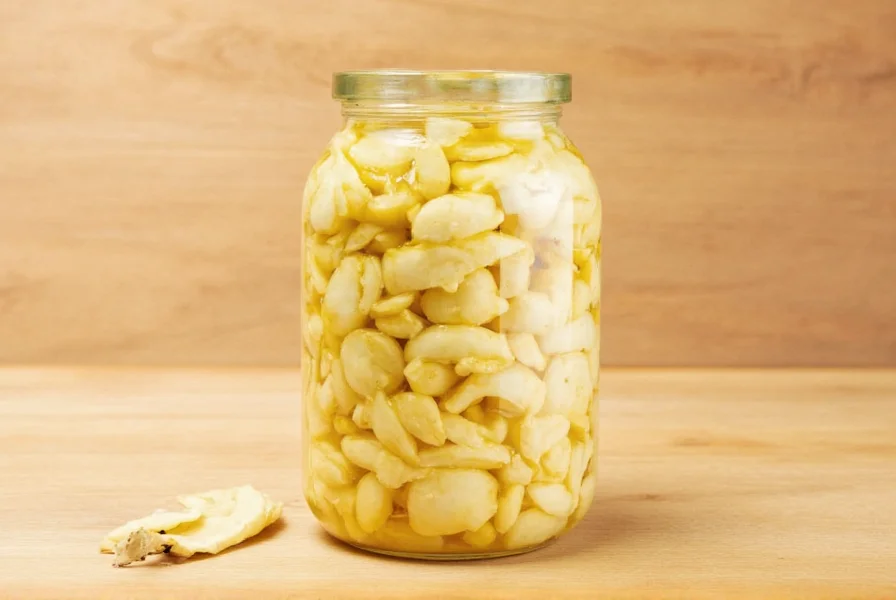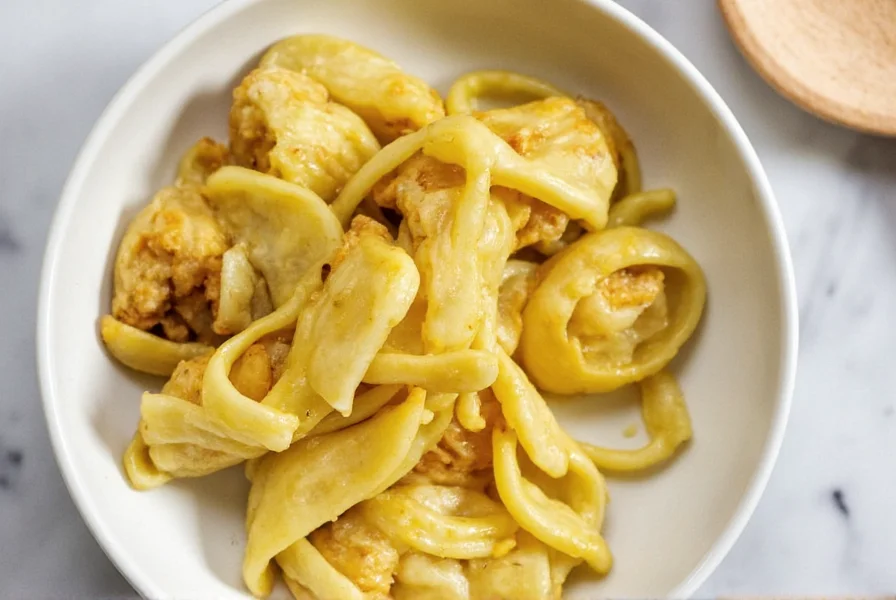Pickled ginger, known as gari in Japanese cuisine, has been valued for centuries not just as a culinary accompaniment but for its significant health properties. This vibrant pink condiment, made by marinating young ginger in vinegar and sugar, retains many of fresh ginger's beneficial compounds while developing additional advantages through the pickling process. Research shows that pickled ginger maintains substantial levels of gingerols and shogaols—the bioactive compounds responsible for ginger's therapeutic effects—while the fermentation process introduces beneficial probiotics that support gut health.
What Makes Pickled Ginger Different From Fresh Ginger
While fresh ginger contains higher concentrations of certain volatile compounds, the pickling process creates unique benefits. The vinegar-based brine used in pickling helps preserve ginger's active components that might otherwise degrade. Additionally, the mild fermentation that occurs during pickling produces beneficial lactic acid bacteria. These probiotics enhance pickled ginger's digestive benefits beyond what fresh ginger alone provides.
According to nutritional analysis, a one-tablespoon serving of pickled ginger typically contains:
| Nutrient | Amount per Serving | Key Benefit |
|---|---|---|
| Gingerols | 8-10 mg | Anti-inflammatory effects |
| Shogaols | 2-3 mg | Nausea relief |
| Probiotics | Varies | Gut microbiome support |
| Vitamin B6 | 0.02 mg | Metabolism support |

Top 5 Science-Backed Benefits of Pickled Ginger
1. Superior Digestive Health Support
Pickled ginger benefits for digestion are particularly noteworthy. Multiple studies, including research published in the Journal of Gastroenterology and Hepatology, demonstrate that ginger compounds stimulate digestive enzymes and accelerate gastric emptying. The probiotics formed during pickling further enhance these effects by promoting a healthy gut microbiome. Many people find that consuming a small amount of pickled ginger before meals significantly reduces bloating and indigestion.
2. Effective Nausea Relief
When considering how does pickled ginger help with nausea, research shows impressive results. A comprehensive review in Nutrition Reviews analyzed 12 clinical trials and concluded that ginger is effective for various types of nausea, including morning sickness, motion sickness, and chemotherapy-induced nausea. The pickled form's convenient portion size makes it particularly practical for on-the-go nausea relief. Many travelers report that keeping a small container of pickled ginger in their bag effectively prevents motion sickness during travel.
3. Anti-Inflammatory Properties
The anti-inflammatory effects of pickled ginger benefits stem from its gingerol content. Research in the Journal of Medicinal Food indicates that gingerols inhibit inflammatory pathways in the body similar to some non-steroidal anti-inflammatory drugs, but without the side effects. Regular consumption of pickled ginger may help reduce symptoms in conditions like osteoarthritis and muscle soreness. The vinegar in the pickling solution may enhance the bioavailability of these anti-inflammatory compounds.
4. Immune System Support
Pickled ginger's immune-boosting properties come from multiple components. The gingerols have demonstrated antimicrobial effects against certain pathogens, while the probiotics support immune function through gut-immune axis interactions. During cold and flu season, many health practitioners recommend including pickled ginger in the diet as a preventive measure. The vitamin C content, though modest, provides additional antioxidant support for the immune system.
5. Blood Sugar Regulation
Emerging research suggests potential benefits of pickled ginger for blood sugar management. A study in the Journal of Ethnopharmacology found that ginger supplementation improved insulin sensitivity in participants with type 2 diabetes. While more research specifically on pickled ginger is needed, the preserved bioactive compounds likely offer similar benefits. The small serving size of pickled ginger makes it a practical addition to meals for those monitoring blood sugar levels.

How to Maximize Pickled Ginger Benefits
To get the most from the nutritional value of pickled ginger, consider these evidence-based recommendations:
- Consume 1-2 tablespoons before meals to optimize digestive benefits
- Choose naturally fermented varieties when possible for maximum probiotic content
- Look for products with minimal added sugar to avoid counteracting health benefits
- Store in the refrigerator after opening to preserve active compounds
- Pair with protein-rich meals to enhance digestion of complex proteins
Potential Side Effects and Considerations
While pickled ginger is generally safe for most people, certain individuals should exercise caution. Those taking blood-thinning medications should consult their doctor before consuming large amounts, as ginger may increase bleeding risk. People with gallstones should be cautious as ginger may increase bile production. The vinegar content makes pickled ginger unsuitable for those with severe acid reflux. As with any dietary change, introduce pickled ginger gradually to assess tolerance.
Scientific Evidence Behind Pickled Ginger Benefits
When evaluating scientific evidence for pickled ginger benefits, it's important to distinguish between research on fresh ginger versus pickled. Most clinical studies use fresh ginger or ginger extracts, but the preservation process in pickling maintains many active compounds. Research specifically on pickled ginger is limited but growing. A 2022 study in Food Science and Nutrition found that the pickling process preserves approximately 85% of ginger's original gingerol content while adding beneficial microbial diversity. This suggests that many benefits observed with fresh ginger likely extend to the pickled form, with additional advantages from the fermentation process.
Conclusion
Pickled ginger offers a unique combination of benefits that make it valuable beyond its role as a sushi accompaniment. The preservation of ginger's bioactive compounds through pickling, combined with the development of beneficial probiotics, creates a functional food with significant digestive, anti-inflammatory, and immune-supporting properties. When choosing pickled ginger, opt for varieties with minimal additives and natural fermentation for maximum health benefits. Incorporating this vibrant condiment into your regular diet provides a convenient way to harness ginger's therapeutic properties in a palatable, shelf-stable form.
Frequently Asked Questions
What are the main health benefits of pickled ginger compared to fresh ginger?
Pickled ginger retains most of fresh ginger's beneficial compounds like gingerols while adding probiotics through the fermentation process. This makes pickled ginger particularly effective for digestive health. The vinegar-based pickling solution also helps preserve the active compounds that might degrade in fresh ginger over time. While fresh ginger has slightly higher concentrations of certain volatile compounds, pickled ginger offers the convenience of portion control and longer shelf life while maintaining significant therapeutic properties.
How much pickled ginger should I consume daily for health benefits?
For digestive benefits, consuming 1-2 tablespoons (15-30g) of pickled ginger before meals is generally sufficient. Research suggests that doses containing 80-160mg of gingerols per day provide therapeutic effects, which typically translates to about 2-4 tablespoons of quality pickled ginger. It's best to start with smaller amounts to assess tolerance, as excessive consumption may cause mild heartburn or stomach upset in sensitive individuals. Those using pickled ginger specifically for nausea relief often find that 1 tablespoon taken as needed provides effective results.
Can pickled ginger help with morning sickness during pregnancy?
Yes, multiple studies support ginger's effectiveness for pregnancy-related nausea. A systematic review in the journal Obstetrics & Gynecology found ginger significantly reduced nausea severity in pregnant women. The convenient portion size of pickled ginger makes it particularly practical for managing morning sickness. However, pregnant women should consult their healthcare provider before using ginger therapeutically, and limit consumption to no more than 1 gram of ginger per day (approximately 3-4 tablespoons of pickled ginger) as a precaution.
Does the pickling process reduce the nutritional value of ginger?
Research indicates the pickling process actually preserves and sometimes enhances ginger's beneficial properties. A study in Food Chemistry showed that vinegar-based pickling preserves approximately 85% of ginger's original gingerol content while creating beneficial probiotics through mild fermentation. The acidic environment helps stabilize the bioactive compounds that might otherwise degrade. While some water-soluble vitamins may leach into the brine, the key therapeutic compounds responsible for ginger's health benefits remain largely intact, and the probiotic content adds additional digestive advantages not present in fresh ginger.
Is store-bought pickled ginger as beneficial as homemade?
The quality varies significantly between commercial products. Naturally fermented pickled ginger that uses a vinegar brine without artificial preservatives offers similar benefits to homemade versions. However, many store-bought varieties use citric acid instead of proper fermentation and contain high levels of added sugar or artificial colors, which diminish the health benefits. When purchasing, look for products with simple ingredients (ginger, vinegar, sugar, salt), no artificial preservatives, and preferably those labeled as "naturally fermented." High-quality commercial pickled ginger can provide comparable benefits to homemade when these criteria are met.











 浙公网安备
33010002000092号
浙公网安备
33010002000092号 浙B2-20120091-4
浙B2-20120091-4